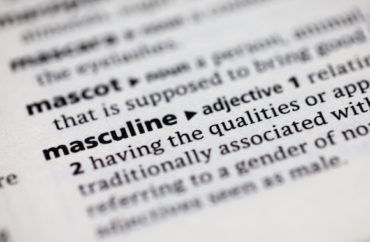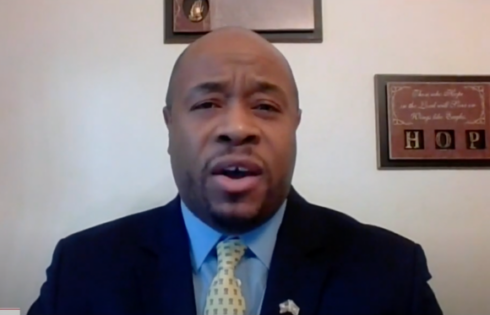
Fraternity brothers were having a ‘deleterious effect on the student body’
A long-dormant male-centric initiative on the campus of Washington University in St. Louis has been revived by two students there, with the group seeking to “improve the state of masculine-identifying students” at the school.
The university’s news service reported last semester that the “Men’s Project” had been founded in 2013 but had laid “dormant” until two students had revived it in the spring of 2019.
Reached for comment via email, Nicholas Kinberg, the treasurer and director of operations for the Men’s Project, expressed uncertainty as to why it had been defunct for over half a decade.
“Because of the loss of institutional knowledge, we are unsure of why the Men’s Project was dormant for six years and why it was launched in the first place. If we were to give our best guess, the Men’s Project was probably dormant because students occupied themselves with other activities having to do with gender studies and interpersonal violence. The Men’s Project was probably initially launched for reasons similar to why the Men’s Project was revived in spring 2019,” Kinberg said.
Making campus ‘safer’
The university reported that shortly after joining the Sigma Chi fraternity, senior Sean Dunnsue and another student re-opened the Men’s Project, what Dunnsue described to the university as “a space where men can express feelings even if they are considered ‘problematic’.” Dunnsue was later convinced of the project’s necessity by a report from the Women’s Panhellenic Society, which determined that “sorority members had been harassed or assaulted by members of every fraternity chapter on campus.”
In his interview with the school he dismissed terms like “toxic masculinity,” claiming that such phrases “can make people shut down and feel defensive.” Instead, he said, the project is “all about having a place where we can break down the stereotypes we see every day in the media, in our families and among our friends.”
Though Dunnsue was reluctant to use the phrase “toxic masculinity,” Kinberg in his email to The Fix referenced it.
“Our goal is to combat toxic masculinity on campus by broaching discussions about rape culture, mental health, emotional intelligence, and other topics to improve the state of masculine-identifying students at WashU,” he said. The group’s website, meanwhile, says the project “is accepting of people from all backgrounds, and open to hearing whatever ideas they may have.”
Kinberg said the project’s revitalization “stemmed from the perception of a few fraternity brothers.”
“Brothers in Alpha Delta and Sigma Chi perceived that the masculinity of their brothers was having a deleterious effect on the student body through sexual assaults, hazing, and other agonizing practices performed by masculine-identifying students on campus. The Men’s Project was formed to counteract these phenomena and make the campus culture safer for the student body,” he said.
When asked for details, Kinberg described several recent meetings and the topics discussed in them:
During [a recent] hike, we discussed our undergraduate experiences in terms of the friends we’d made, as well as our sexual orientations, among which were asexuality, homosexuality, and heterosexuality. During our latest dinner, we discussed the New York Times article “Not Your Father’s Masculinity…” The article discusses the changing nature of masculinity in the 2010s. As part of our discussion, we talked about whether we agree that this changing masculinity is good or bad for masculine-identifying people.
Dunnsue told the school he was inspired in part by the “primal vibe” of his high school locker room. “It made me feel like a misfit because I was unwilling to assert my masculinity in the ways that everyone expected,” he said.
When he came to college and considered pledging a fraternity, he said, he “decided then that if I’m going to reap the benefits of Greek life, I’m going to make it better.”
MORE: Gender scholar says raising boys to be ‘emotionally stoic’ leads to violence, suicide
MORE: School helps students ‘nurture feminist masculinities’ during
IMAGE: Sarioz / Shutterstock.com
Like The College Fix on Facebook / Follow us on Twitter






Please join the conversation about our stories on Facebook, Twitter, Instagram, Reddit, MeWe, Rumble, Gab, Minds and Gettr.